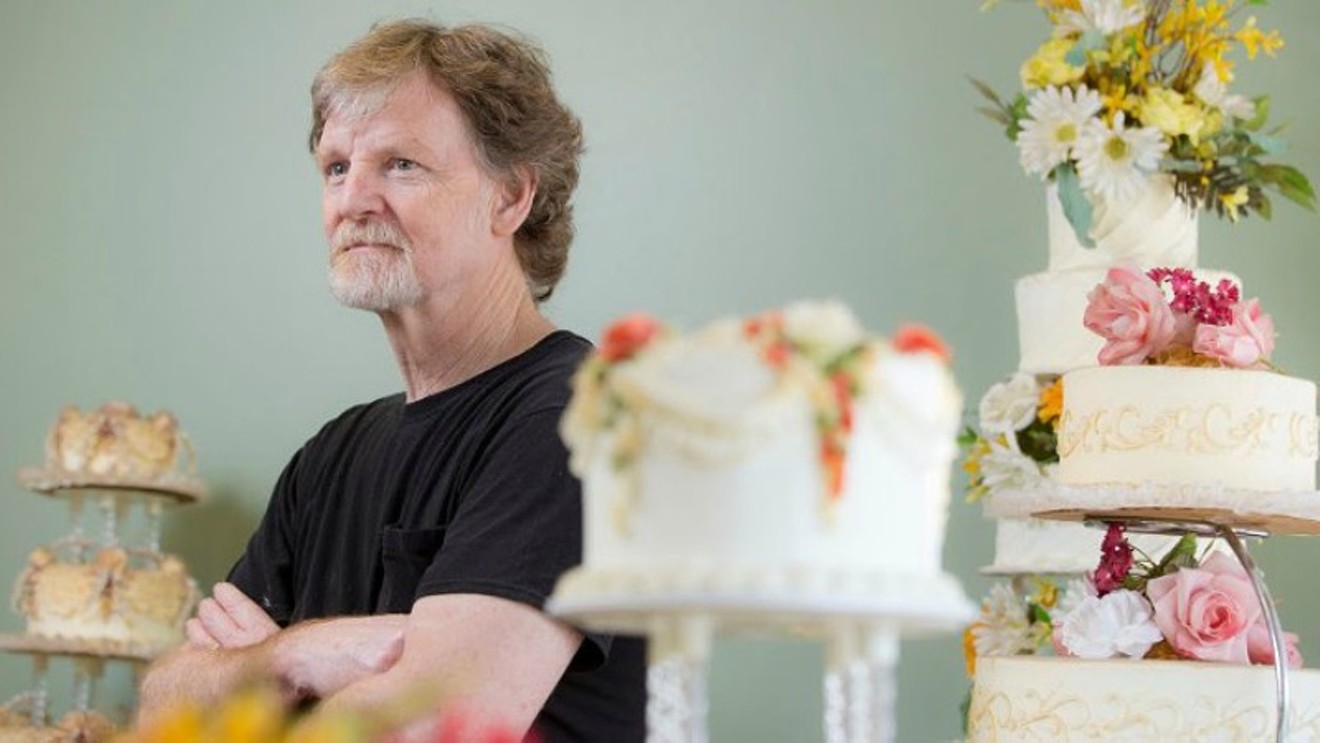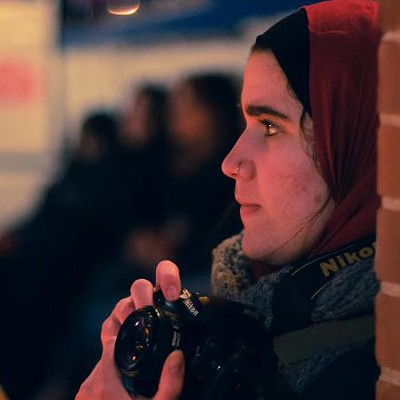Republicans felt some vindication on Monday, June 4, when the U.S. Supreme Court sided with Lakewood baker Jack Phillips in the case, which had made its way through the state's court system.
In 2012, Phillips refused to bake a cake for two gay men, citing his Christian beliefs. The Colorado Civil Rights Commission sided with the couple in 2014, as did the Colorado Court of Appeals in 2015. After the state Supreme Court declined to accept the case on appeal, Phillips asked the nation's highest court last year to review the case.
The U.S. Supreme Court decision was extremely narrow and took aim at the Colorado Civil Rights Commission for its supposed lack of neutrality in weighing Phillips's freedom of religion. The majority opinion, written by Justice Anthony Kennedy, highlighted a comment made by a commissioner on the CCRC in 2014; the commissioner's quote was as follows:
"Freedom of religion and religion has been used to justify all kinds of discrimination throughout history, whether it be slavery, whether it be the holocaust, whether it be — I mean, we — we can list hundreds of situations where freedom of religion has been used to justify discrimination. And to me it is one of the most despicable pieces of rhetoric that people can use to — to use their religion to hurt others."
Although Colorado anti-discrimination law is still wholly intact — the high court didn't strike any part of it down — conservative politicians are already making their victory laps on social media and using this opportunity to take aim at Democrats who one-upped them during negotiations to reform the state's civil-rights agency during the 2018 legislative session."I trust the people of Colorado will elect a legislature and governor this November who are ready to fix the glaring discrimination and animus that the [Colorado Civil Rights Commission] demonstrated toward Jack Phillips."
tweet this
“This ruling stands as a clear and humbling rebuke to all those, inside and outside the Statehouse, who took the position this last session that the Colorado Civil Rights Commission can do no wrong, and that it always acts within appropriate legal and constitutional boundaries. It clearly does not,” said Senate President Kevin Grantham in a statement. "We hate to say we told you so...but we told you so. We pushed for modest but necessary reforms and restraints, which were designed to rein-in the potential for such abuses, but Democrats refused to budge on much of what we proposed, and even now seek to diminish the significance of this ruling. This shows precisely why the Civil Rights Commission needed to be depoliticized, de-radicalized and returned to its original mission — to protect the civil liberties of all Coloradans, not just a select few."
Last month, House Democrats and Senate Republicans came to a last-minute decision to reform the Colorado Civil Rights Division and its commission just hours before the legislative session adjourned for the year. But conservatives failed to get what they wanted at the end. Senate Republicans had pushed to change the commission's makeup by increasing its membership from seven to nine commissioners who would be appointed by the governor and Statehouse leadership of the opposing party, guaranteeing a partisan split and reducing the governor's influence. Earlier in the session, Republicans attempted to defund the agency as a political tactic to force reforms, but that ultimately blew up on them. In the end, the only changes to the civil-rights agency were subjecting it to periodic legislative audits and increasing business-community representation.
Senator Kevin Lundberg, a Larimer County Republican who was an outspoken critic of the agency and has appeared at rallies for Masterpiece Cakeshop, has fashioned himself a champion for "religious liberties." Over the past three legislative sessions, Lundberg has introduced several religious-exemption bills that would have allowed individuals and organizations to discriminate against same-sex couples based on their religious convictions. This year, he introduced one of the most sweeping religious-exemption laws in state history, as well as a second bill that would have exempted religious foster care and adoption agencies from placing children with same-sex couples.
Lundberg was emboldened by the Supreme Court's decision and is prepared to push for reforms in the Colorado Civil Rights Division next year, but hasn't laid out specifics.
But first, Republicans need a solid majority in both chambers, and that means turning out the Republican vote.
"I trust the people of Colorado will elect a legislature and governor this November who are ready to fix the glaring discrimination and animus that the [Colorado Civil Rights Commission] demonstrated toward Jack Phillips," Lundberg said in a Facebook post following the Supreme Court's decision.
Whoever becomes governor could appoint at least three members to the state's Civil Rights Commission. If the governor is someone like Republican frontrunner Walker Stapleton, Democrats may see their hard-fought defense of the civil-rights agency go down the tubes.
"During the legislative session, I struggled to restore balance to the Civil Rights Commission and ensure that it would not be captured by a viewpoint that favors one set of protected rights over another," said Senator Bob Gardner, who has led those agency reform efforts and voted against the last-minute compromise put forward by House Democrats. "The [U.S. Supreme] Court's ruling today confirms that my concerns were legitimate and the need for balance on the Commission absolutely essential for our citizens. The governor we elect this year will make at least three appointments to the Commission early next year. That is why it is critical that we elect a governor committed to protecting all of our civil rights, including the right to religious freedom."
What does Monday's court decision mean for the way that the Colorado Civil Rights Commission operates?
Probably nothing. Kennedy's majority opinion only centered on the commission's need to balance religious freedoms and the civil rights of protected classes, like the LGBTQ+ community. And the crux of this balance is neutrality when deciding cases. It's still illegal to deny goods or services in Colorado based on sexual orientation or gender identity.
“While we are disappointed with the decision, we take seriously the Court’s admonition that the state must apply its laws and regulations in a manner that is neutral toward religion. We have no doubt that the Colorado Civil Rights Commission will meet that standard as they listen, respectfully, to all sides of the matters that come before it and issue decisions that uphold the protections afforded under Colorado law," Governor John Hicknelooper said in a statement.
Representative Leslie Herod says it is unnecessary to make any changes to the commission. The member who made those disparaging remarks cited by Kennedy is no longer serving on the CCRC, she says, and the commission has consistently come down on the side of justice since its inception more than fifty years ago.
"I believe [the Colorado Civil Rights Commission] is neutral. I believe it has a history of siding on the right of equality while also protecting business interests and ensuring that there is fairness across the board," Herod, the first openly gay African-American elected to the Statehouse, says. Herod was also closely involved with negotiations to protect the civil-rights agency from conservative reformers. "We need to elect a pro-equality majority in statehouses across the country, in Congress and the Oval Office," she says.












